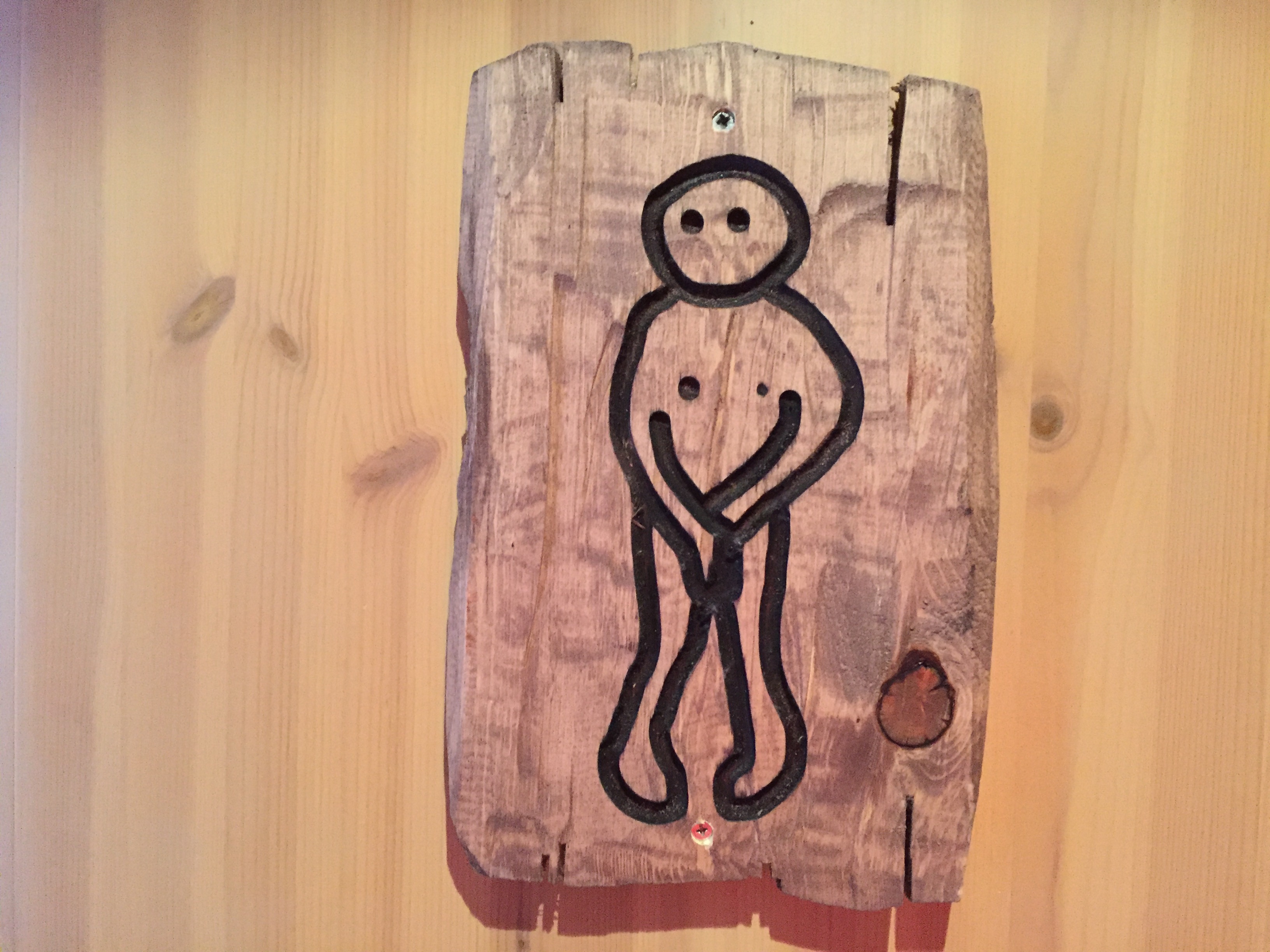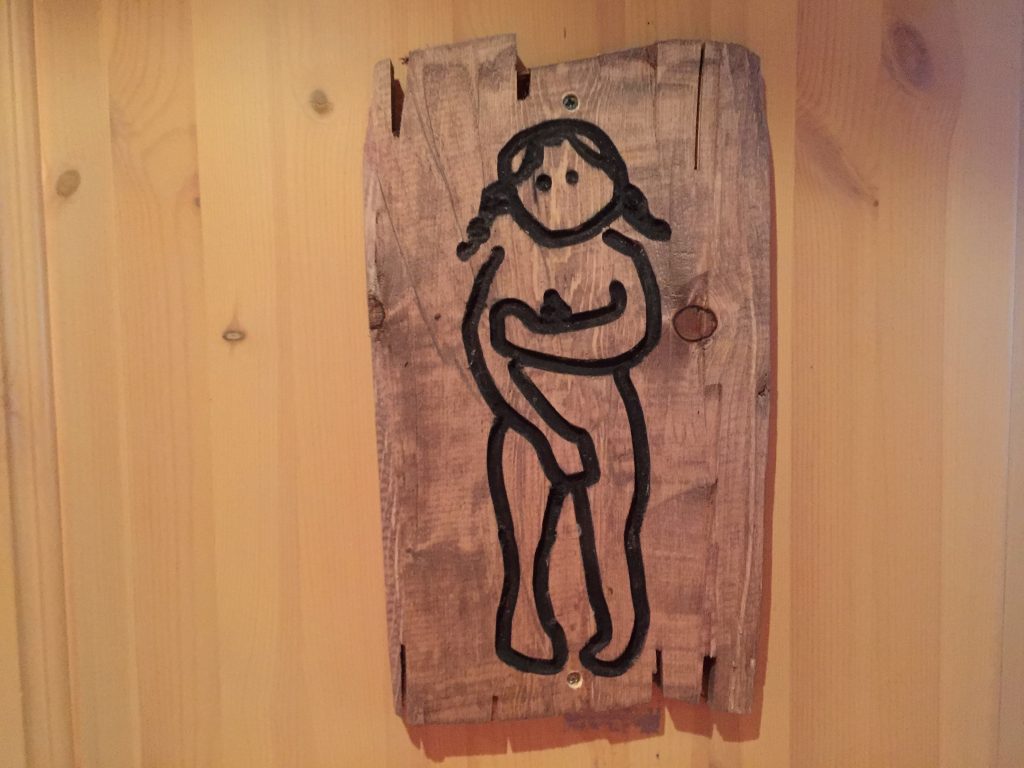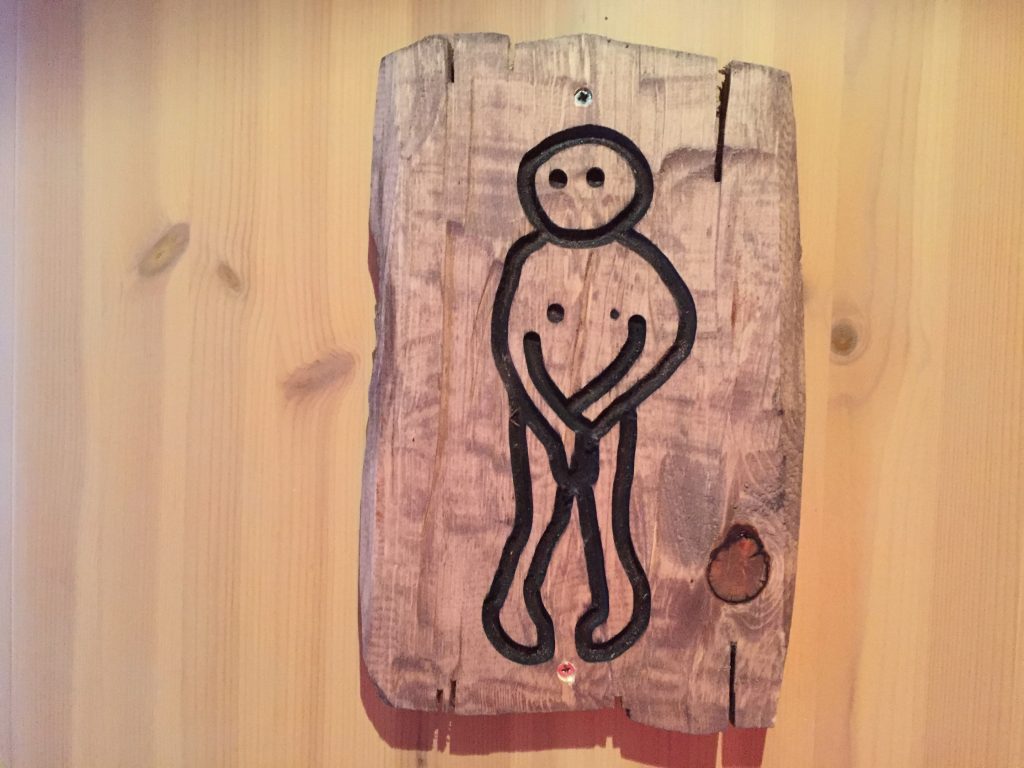“If the doors of perception were cleansed, everything would appear to man as it is, infinite. For. Man has closed himself up, ‘til all he sees is through narrow chinks of his cavern.” –William Blake, The Marriage of Heaven and Hell
“I like that boy Snyder on Sourdough. He’s a calm son of bitch.” -Blackie Burns
Nearly thirty years ago I drove north from Seattle to the Skagit valley in Washington, with my friend Kevin Craft, for a walk up to the summit of Sourdough Mountain. A series of backcountry tours and climbs with my friend John, a backcountry/climbing range in the national park, had acquainted me with the surrounding peaks and valleys, though the terrain was less familiar to my companion Kevin.
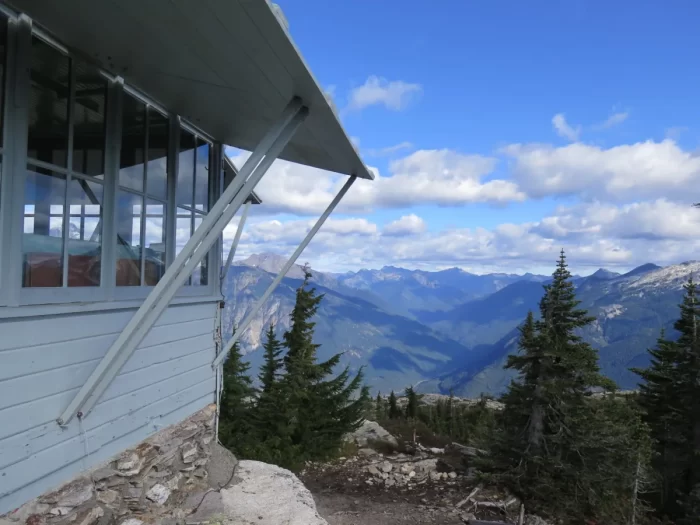
The lookout on Sourdough was built by Glee Davis in 1917. (A peak to the west of Sourdough is named for the Davis family.) The lookout was rebuilt in 1933 and restored in 1998-99. But to get there requires working up a series of broad switchbacks—three-thousand feet in the first three miles—to the four-thousand foot summit.
Kevin happens to be a gifted poet, who has published many poems, books of poems, and has served as the editor of Poetry Northwest. Our late-fall hike went well. And on our walk we both had in mind a poet who had spent time in the North Cascades, Gary Snyder, whose poems are alive with the mountains and valleys of the far West. Here is one:
How Poetry Comes to Me
It comes blundering over the
Boulders at night, it stays
Frightened outside the
Range of my campfire
I go to meet it at the
Edge of the light.
Then, the day following our walk, Kevin sent me a lovely little homage:
How Poetry Comes to Me
After Gary Snyder
Or sometimes I go to meet it
In broad daylight at the lookout
It’s afternoon all morning the light
Slant and subdued running down
The dry creek bed our skin
Sweat-cool stopping to rest the red
Leaves of huckleberry flaring
Like patch fires in the scrub
Going mauve as we pass
The veined skin of their fingers
Now down on all fours
The plump berries clustered there
Not in fear but shriveling
With the season we work through
The dead-end detritus of a sentence
To reach a few ripe words
Like tart and juice at the turn of the trail.
The conversation between these two poems might lead to another poem by Snyder, “Mid-August at Sourdough Mountain Lookout,” first published in Riprap and Cold Mountain Poems:
Down valley a smoke haze
Three days heat, after five days rain
Pitch glows on the fir-cones
Across rocks and meadows
Swarms of new flies.
I cannot remember things I once read
A few friends, but they are in cities.
Drinking cold snow-water from a tin cup
Looking down for miles
Through high still air.
Snyder spent six weeks at the fire lookout on Sourdough in the summer of 1953—packed in by an old Park Service employee, Blackie Burns. I have been thinking about Snyder since last year when I read Snyder’s Lookout Journals during a week in the archives during a research project. Snyder’s journals are exciting and document a mind on fire—reading William Blake, among others.
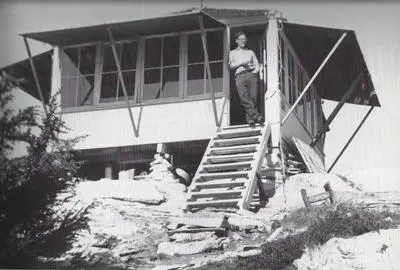
Another poet, and close friend of Snyder during their years at Reed College and after, Phillip Whalen, also put in time working as a lookout, and here is his poem “Sourdough Mountain Lookout,” from The Collected Poems of Philip Whalen:
Sourdough Mountain Lookout
Tsung Ping (375—443): “Now I am old and infirm. I fear I shall no more be able to roam among the beautiful mountains. Clarifying my mind, I meditate on the mountain trails and wander about only in dreams.” ––in The Spirit of the Brush, tr. by Shio Sakanishi
for Kenneth Rexroth
I always say I won’t go back to the mountains
I am too old and fat there are bugs mean mules
And pancakes every morning of the world
Mr. Edward Wyman (63)
Steams along the trail ahead of us all
Moaning, “My poor feet ache, my back
Is tired and I’ve got a stiff prick”
Uprooting alder shoots in the rain
Then I’m alone in a glass house on a ridge
Encircled by chiming mountains
With one sun roaring through the house all day
& the others crashing through the glass all night
Conscious even while sleeping
Morning fog in the southern gorge
Gleaming foam restoring the old sea-level
The lakes in two lights green soap and indigo
The high cirque-lake black half-open eye
Ptarmigan hunt for bugs in the snow
Bear peers through the wall at noon
Deer crowd up to see the lamp
A mouse nearly drowns in the honey
I see my bootprints mingle with deer-foot
Bear-paw mule-shoe in the dusty path to the privy
Much later I write down:
“raging. Viking sunrise
The gorgeous death of summer in the east!”
(Influence of a Byronic landscape—
Bent pages exhibiting depravity of style.)
Outside the lookout I lay nude on the granite
Mountain hot September sun but inside my head
Calm dark night with all the other stars
HERACLITUS: “The waking have one common world
But the sleeping turn aside
Each into a world of his own.”
I keep telling myself what I really like
Are music, books, certain land and sea-scapes
The way light falls across them, diffusion of
Light through agate, light itself . . . I suppose
I’m still afraid of the dark
“Remember smart-guy there’s something
Bigger something smarter than you.”
Ireland’s fear of unknown holies drives
My father’s voice (a country neither he
Nor his great-grandfather ever saw)
A sparkly tomb a plated grave
A holy thumb beneath a wave
Everything else they hauled across Atlantic
Scattered and lost in the buffalo plains
Among these trees and mountains
From Duns Scotus to this page
A thousand years
(“. . . a dog walking on this hind legs—
not that he does it well but that he
does it at all.”)
Virtually a blank except for the hypothesis
That there is more to a man
Than the contents of his jock-strap
EMPEDOCLES: “At one time all the limbs
Which are the body’s portion are brought together
By Love in blooming life’s high season; at another
Severed by cruel Strife, they wander each alone
By the breakers of life’s sea.”
Fire and pressure from the sun bear down
Bear down centipede shadow of palm-frond
A limestone lithograph—oysters and clams of stone
Half a black rock bomb displaying brilliant crystals
Fire and pressure Love and Strife bear down
Brontosaurus, look away
My sweat runs down the rock
HERACLITUS: “The transformations of fire
are, first of all, sea; and half of the sea
is earth, half whirlwind. . . .
It scatters and it gathers; it advances
and retires.”
I move out of a sweaty pool
(The sea!)
And sit up higher on the rock
Is anything burning?
The sun itself! Dying
Pooping out, exhausted
Having produced brontosaurus, Heraclitus
This rock, me,
To no purpose
I tell you anyway (as a kind of loving) . . .
Flies & other insects come from miles around
To listen
I also address the rock, the heather,
The alpine fir
BUDDHA: “All the constituents of being are
Transitory: Work out your salvation with diligence.”
(And everything, as one eminent disciple of that master
Pointed out, had been tediously complex ever since.)
There was a bird
Lived in an egg
And by ingenious chemistry
Wrought molecules of albumen
To beak and eye
Gizzard and craw
Feather and claw
My grandmother said:
“Look at them poor bed-
raggled pigeons!”
And the sign in McAlister Street:
“IF YOU CAN’T COME IN
SMILE AS YOU GO BY
LOVE
THE BUTCHER”
I destroy myself, the universe (an egg)
And time—to get an answer:
There are a smiler, a sleeper and a dancer
We repeat the conversation in the glittering dark
Floating beside the sleeper.
The child remarks, “You knew it all the time.”
I: “I keep forgetting that the smiler is
Sleeping; the sleeper, dancing.”
From Sauk Lookout two years before
Some of the view was down the Skagit
To Puget Sound: From above the lower ranges,
Deep in the forest—lighthouses on clear nights.
This year’s rock is a spur from the main range
Cuts the valley in two and is broken
By the river; Ross Dam repairs the break,
Makes trolley buses run
Through the streets of dim Seattle far away.
I’m surrounded by mountains here
A circle of 108 beads, originally seeds
of ficus religiosa
Bo-Tree
A circle, continuous, one odd bead
Larger than the rest and bearing
A tassel (hair-tuft) (the man who sat
under the tree)
In the center of the circle,
a void, an empty figure containing
All that’s multiplied;
Each bead a repetition, a world
Of ignorance and sleep.
Today is the day the goose gets cooked
Day of liberation for the crumbling flower
Knobcone pinecone in the flames
Brandy in the sun
Which, as I said, will disappear
Anyway it’ll be invisible soon
Exchanging places with stars now in my head
To be growing rice in China through the night.
Magnetic storms across the solar plains
Make Aurora Borealis shimmy bright
Beyond the mountains to the north.
Closing the lookout in the morning
Thick ice on the shutters
Coyote almost whistling on a nearby ridge
The mountain is THERE (between two lakes)
I brought back a piece of its rock
Heavy dark-honey color
With a seam of crystal, some of the quartz
Stained by its matrix
Practically indestructible
A shift from opacity to brilliance
(The Zenbos say, “Lightening-flash & flint-spark”)
Like the mountains where it was made
What we see of the world is the mind’s
Invention and the mind
Though stained by it, becoming
Rivers, sun, mule-dung, flies—
Can shift instantly
A dirty bird in a square time
Gone
Gone
REALLY gone
Into the cool
O MAMA!
Like they say, “Four times up,
Three times down.” I’m still on the mountain.
(note: The quotes of Empedocles and Heraclitus are from John Burnet’s Early Greek Philosophy, Meridian Books, New York.)
In his Lookout Journals, Snyder copied out the words from William Blake in the epigraph to this post followed by a single word of commentary: “Ah”

